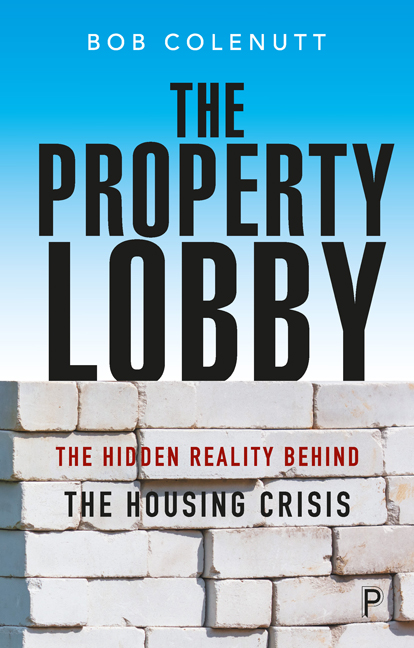Book contents
- Frontmatter
- Dedication
- Contents
- Acknowledgements
- Preface
- 1 The Finance–Housebuilding Complex
- 2 The Housing Shortage
- 3 The Housebuilding Business
- 4 Financing Housing Investment
- 5 The Property Lobby
- 6 Shaping National Housing and Planning Policy
- 7 The 2008 Financial Crash Continues
- 8 The Housebuilders and Affordable Housing
- 9 How the Social and Affordable Housing Sectors Got Swallowed
- 10 Local Case Studies
- 11 Unblocking the Impasse
- Postscript
- Notes
- References
- Index
7 - The 2008 Financial Crash Continues
Published online by Cambridge University Press: 10 March 2021
- Frontmatter
- Dedication
- Contents
- Acknowledgements
- Preface
- 1 The Finance–Housebuilding Complex
- 2 The Housing Shortage
- 3 The Housebuilding Business
- 4 Financing Housing Investment
- 5 The Property Lobby
- 6 Shaping National Housing and Planning Policy
- 7 The 2008 Financial Crash Continues
- 8 The Housebuilders and Affordable Housing
- 9 How the Social and Affordable Housing Sectors Got Swallowed
- 10 Local Case Studies
- 11 Unblocking the Impasse
- Postscript
- Notes
- References
- Index
Summary
The 2008 financial crash is still reverberating through the economy and UK politics – and the housing crisis is one of its many casualties. Ten years or more since Lehman Brothers, Northern Rock and HBOS went bankrupt, bringing the financial system crashing down, the economy and politics of the UK are still in shock. The financial crash hit the UK housing market very hard. There was a slump in house prices, a halt to housebuilding and a severe liquidity crisis for the banks. It created economic and political conditions that perpetuated the housing crisis for ten years and more. The implications have spread into every aspect of civic society. In the Brexit debate, the national divide between the haves and have- nots in housing is a key factor in the arguments about how ‘left behind’ communities feel about Brexit. This chapter explores the implications of the 2008 financial crash and what it means for tackling the housing crisis in the UK.
The financial crash was largely created by reckless lending for property development by US banks and finance groups, which poured money into property in the preceding decade. Bank lending was heavily directed at the housing market above all other parts of the property sector. In the boom, mortgage companies in the US sold mortgages to all comers, with little scrutiny of their ability to pay. As much as 80 per cent of all mortgage loans in the US were ‘self- certified’ (Farlow, 2013: 41). Investors got in on the act, speculating in portfolios of mortgages including ‘sub- prime’ or high- risk mortgages taken out by poorer families and by people remortgaging their properties to spend on consumer goods. Hedge funds and other investor groups ‘shorted’ the housing market, that is, bet against the market recovering, and made billions out of the collapse in prices, in other words, out of the misery of ordinary homeowners (as clinically illustrated in the 2015 film The big short). When confidence fell, the portfolios of mortgages that had been wilfully traded on the financial markets were worthless and many families were evicted because they could not afford their mortgage payments.
- Type
- Chapter
- Information
- The Property LobbyThe Hidden Reality behind the Housing Crisis, pp. 99 - 106Publisher: Bristol University PressPrint publication year: 2020

